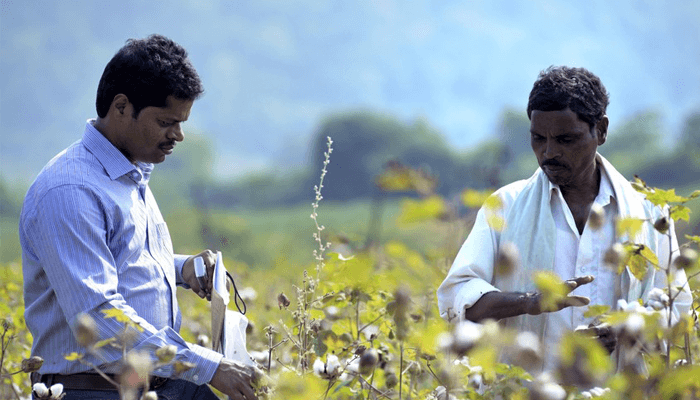To strengthen the power of farmers in trade relationships, Fairtrade International today announced a new version of its certification standard for small-scale farmers. The revised standard aims to drive more benefits for Fairtrade farmer organizations and make them more resilient to market shocks and climate change.
The standard is intended to improve the lives and livelihoods of the 1.5 million farmers certified under the Fairtrade Standard for Small-scale Producer Organizations – representing about 90 percent of all Fairtrade certified organizations.
Dario Soto Abril, Global CEO of Fairtrade International, said: “The revised standard reflects one of Fairtrade’s most fundamental beliefs: the greatest impact for farmers can be achieved if the immediate benefits of minimum prices and a fixed premium are coupled with the long-term benefits of greater democratic participation, stronger producer organizations and more sustainable production practices. Farmers played a central role in shaping this standard, as they know best how tackle their challenges.”
Raising the bar for farmer sustainability
The standard revision bolsters Fairtrade’s core focus on farmer empowerment and resilience, while strengthening requirements and incorporating best practices to address current economic, social and environmental realities.
Key changes include:
- Environmental protection: Requirements on monitoring and preventing deforestation have been strengthened, and additional requirements on improving soil fertility and sustainable water use, as well as action on climate change, have been added.
- Stronger, democratic organizations: To make sure cooperatives seeking Fairtrade certification will be able to benefit, the Standard now requires applicants to demonstrate that they are established organizations, have Fairtrade market potential including interested buyers, and have made a democratic and informed decision to join Fairtrade. A greater majority of cooperatives’ members must be small family farms than was previously required.
- Good governance and oversight: To support informed decision-making on using the Fairtrade Premium (the additional sum of money paid to producer organizations when they sell on Fairtrade terms), the standard now requires cooperatives to carry out a needs assessment shortly after getting certified. Based on the experience of successful cooperatives and Fairtrade’s living income strategy, further guidance on spending the Fairtrade Premium has been added. Additional checks and balances and surveillance requirements for cooperatives foster greater transparency.
- Health and safety: The requirements on labelling and storage of pesticides and hazardous chemicals have been strengthened to protect the wellbeing of farmers and hired workers.
- Equality: Cooperatives are now encouraged to adopt a gender policy and take action to increase the active and equal participation of women in the organization.
Farmers expect the standard to continue driving positive change. According to Deborah, a member of Asunafo North Union in Ghana: “Forest degradation, indiscriminate felling of trees and bush burning before farming has been normal in my society. This has negatively affected biodiversity and ecosystems leading to low productivity, water bodies drying up, and exposure to climate change and soil erosion. I am positive that the new requirements will help us manage our natural resources effectively.”
Democratic process put farmers at the centre
The revised standard is the result of an inclusive process that included consultations with more than 500 Fairtrade cooperatives in 70 countries, representing almost half of all Fairtrade certified farmer groups. Traders, brands and other stakeholders around the world also participated in the process.
“The difference from other certifications is that we have direct contact with Fairtrade,” said Assata, a cocoa farmer in Côte d’Ivoire. “We are part taking part in the system as decision-making stakeholders.”
The changes will take effect on 1 July 2019 for cooperatives that become certified on or after that date. For currently certified cooperatives, some requirements take effect on 1 July and others have a phased transition period. The required changes in cooperatives’ membership structures will be granted the longest transition, becoming mandatory in January 2022.
For further information, please contact:
Giovanna Schmidt
Media Relations Manager
Email: press@fairtrade.net
Phone: +49 228 94923 236
